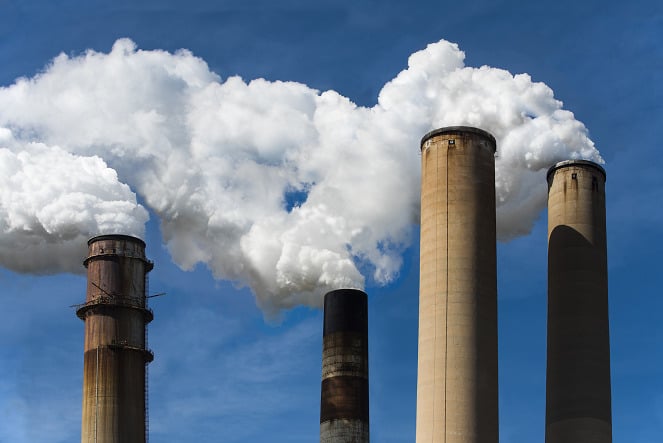The British public largely do not blame green levies for the increases to energy bills, a new study by the Energy and Climate Intelligence Unit (ECIU) has found.
Instead, 34% pointed to energy company profiteering as the key cause, 29% to Russian government reducing gas supplies to Europe and 28% to growing global demand. Just 13% believed green levies were to blame, and 18% the coronavirus pandemic.
Earlier this month, reports emerged that the Treasury was considering a cut to the Energy Company Obligation. Such a change to a ‘green levy’ was met by widespread concern due to the long-term impact it could have on holding back the energy transition, leaving the UK more vulnerable to fluctuations in the wholesale gas market in the future.
ECIU found that just 13% of people think the best short-term solution to the energy crisis is to remove green levies.
“The public’s finger is clearly on the pulse correctly identifying Russian interference and global gas demand as causes of the current gas crisis while also spotting that gas companies’ profits are rising in line with gas prices. They understand that gas bought in the UK is part of an international market, the price of which is driven by international forces,” said Dr Simon Cran-McGreehin, head of analysis at ECIU.
To tackle surging bills – which are expected to jump substantially from April after the price cap is reset – more than half (51%) of respondents supported decreasing Britain’s reliance on gas through either more renewables or insulation. Meanwhile, just 9% saw more North Sea exploration and just 8% saw fracking as the long-term solution.
“Whilst we need Government support for struggling households now, we also need a long-term solutions which protect UK bill payers from future price spikes driven by international volatility including Russian interference,” said Chris Skidmore, MP for Kingswood.
“The simple answer is for us to use less gas. This means ramping up support for schemes such as the Energy Company Obligation (ECO) which will not just be a sticking plaster for today but pay back for years to come by providing energy efficient homes and cheaper bills for fuel poor.”
Despite the general support for net zero policies identified in the poll, with 73% of Britons stating they support the UK’s net zero target, the impact of insulation is still underestimated.
Of those who expressed a view on insulation, 55% of the total polled, more than four in five underestimated the heating bill savings. For example, a home moving from a Band D home efficiency home to a Band C home, could save an average household £170 a year with the anticipated price cap rise in April.
In terms of the wider net zero policy environment, ECIU found that:
- 73% of respondents support the government providing zero-interest loans to help upgrade the insulation of homes and minimise energy waste, while 13% oppose
- 65% support government grants of £5,000 for replacing gas boilers with electric heat pumps, while 20% oppose
- 54% support plans to phase out the sale of new gas boilers and replacing them with electric heat pumps, while 26% oppose
- 60% support government grants for up to 35% of the cost of an electric vehicle (up to £2,500), while 22% oppose
- 53% support phasing out the sale of new petrol and diesel vehicles, which is currently set for 2030, while 34% oppose
- 51% support providing financial aid to poor and vulnerable countries to help them shift to clean energy and reduce their emissions, while 33% oppose
“Net zero measures such as insulation and boosting British renewables are saving people money during this gas crisis. Early green levies drove down the costs and everyone now knows that new wind and solar are the cheapest way to make electricity in the UK. On EVs and heat pumps, the public back policies to speed their uptake even though not all will directly benefit from these incentives immediately,” said Cran-McGreehin.
Moving away from gas, and towards a more independent, decarbonised and electrified energy system must be part of the long-term solution to the current energy crisis. But how to react in the short-term has been up for more debate, with suggestions for the best path forwards including changes to VAT and a windfall tax on north sea oil and gas companies.
When the price cap is reset, and reflects the surging cost of gas – which quintupled in 2021 according to the ECIU – it risks pushing up the number of fuel poor in Britain to 6.3 million.





